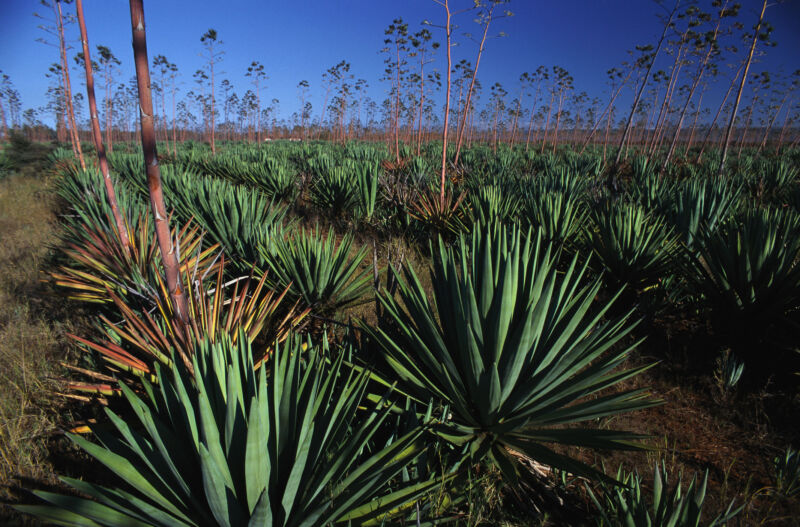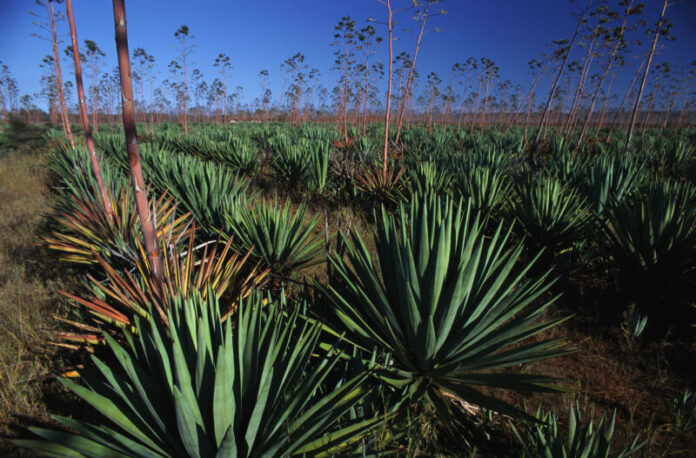
Enlarge / Sisal is an invasive species that is also grown agriculturally. (credit: Chris Hellier)
Women and girls across much of the developing world lack access to menstrual products. This means that for at least a week or so every month, many girls don’t go to school, so they fall behind educationally and often never catch up economically.
Many conventional menstrual products have traditionally been made of hydrogels made from toxic petrochemicals, so there has been a push to make them out of biomaterials. But this usually means cellulose from wood, which is in high demand for other purposes and isn’t readily available in many parts of the globe. So Alex Odundo found a way to solve both of these problems: making maxi pads out of sisal, a drought-tolerant agave plant that grows readily in semi-arid climates like his native Kenya.
Putting an invasive species to work
Sisal is an invasive plant in rural Kenya, where it is often planted as livestock fencing and feedstock. It doesn’t require fertilizer, and its leaves can be harvested all year long over a five- to seven-year span. Odundo and his partners in Manu Prakash’s lab at Stanford University developed a process to generate soft, absorbent material from the sisal leaves. It relies on treatment with dilute peroxyformic acid (1 percent) to increase its porosity, followed by washing in sodium hydroxide (4 percent) and then spinning in a tabletop blender to enhance porosity and make it softer.
Read 6 remaining paragraphs | Comments
Ars Technica - All contentContinue reading/original-link]




